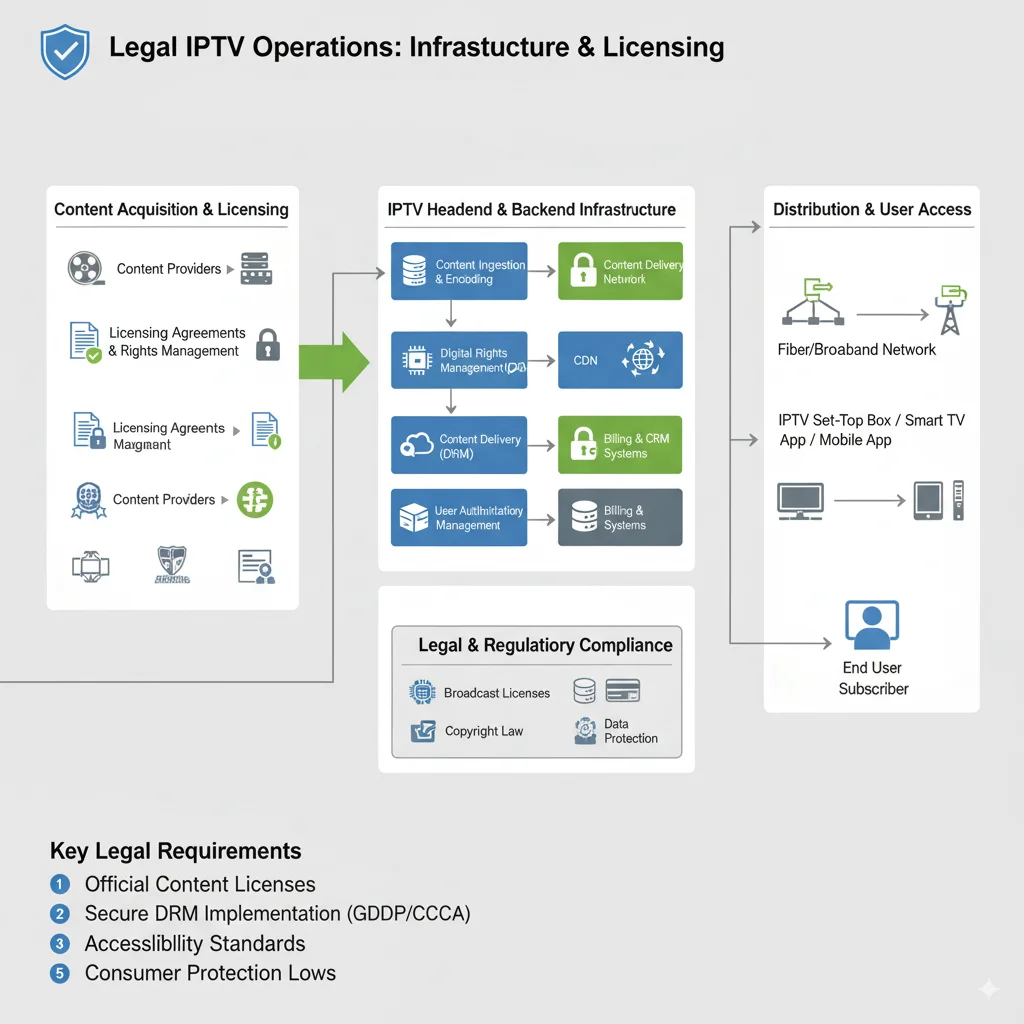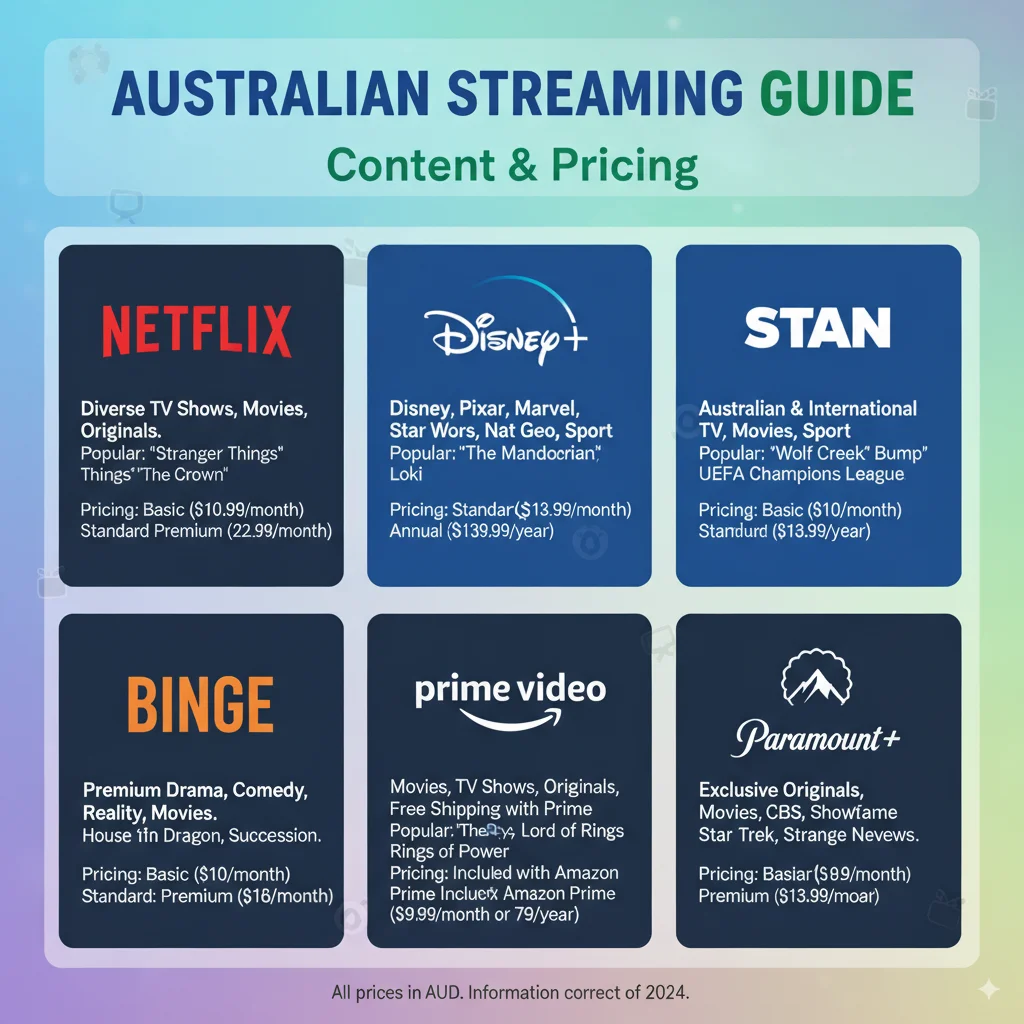
IPTV legality and online piracy represent one of the most complex and misunderstood areas of digital entertainment law in Australia today. As streaming technology continues to evolve rapidly, millions of Australians find themselves navigating a complicated legal landscape where the line between legitimate and illegal content consumption isn’t always clear. Understanding the legal implications of different IPTV services has become crucial for consumers who want to enjoy digital entertainment without inadvertently breaking copyright laws or exposing themselves to significant legal and financial risks.
The confusion surrounding IPTV legality and online piracy stems partly from the rapid evolution of streaming technology, which has outpaced regulatory frameworks in many jurisdictions. While legitimate IPTV services operate within established legal boundaries, numerous illegal services masquerade as legitimate options, making it challenging for average consumers to distinguish between lawful and unlawful streaming platforms.
Understanding IPTV Technology and Legal Framework
What Constitutes Legal IPTV Services
Internet Protocol Television (IPTV) technology itself is entirely legal and represents a legitimate method of delivering television content over internet networks. The legality question arises not from the technology itself, but from how content is acquired, licensed, and distributed through these platforms.
Legal IPTV services operate under proper licensing agreements with content creators, distributors, and copyright holders. These services pay substantial fees to content owners for the rights to stream movies, television shows, sports events, and other entertainment programming to their subscribers.
Copyright Law Framework in Australia
Australian copyright law, governed primarily by the Copyright Act 1968, provides robust protections for content creators and establishes clear penalties for copyright infringement. Under these laws, IPTV legality and online piracy issues are addressed through both civil and criminal enforcement mechanisms.
The Australian Communications and Media Authority (ACMA) works alongside copyright holders to identify and block access to illegal streaming services. Since 2016, Australian courts have ordered internet service providers to block access to hundreds of illegal streaming websites, demonstrating the government’s commitment to protecting intellectual property rights.
Legal Risks and Consequences of Illegal IPTV Use
Criminal Penalties for Copyright Infringement
Individuals caught using illegal IPTV services face potential criminal charges under Australian law. The maximum penalty for willful copyright infringement includes fines up to $117,000 for individuals and potential imprisonment. These penalties reflect the serious nature of copyright violations and the significant economic harm caused by illegal streaming.
Recent prosecutions in Australia have targeted both operators of illegal streaming services and, increasingly, end users who knowingly access copyrighted content through unauthorized platforms. Law enforcement agencies have developed sophisticated methods for tracking illegal streaming activity, making detection more likely than many consumers realize.
Civil Liability and Financial Consequences
Beyond criminal penalties, individuals using illegal IPTV services may face civil lawsuits from content owners seeking damages for copyright infringement. These civil actions can result in significant financial judgments, including actual damages, statutory damages, and legal fees.
The concept of IPTV legality and online piracy becomes particularly complex when considering the various forms of civil liability. Content owners may pursue damages not only for direct infringement but also for contributory infringement when users share illegal streams with others or promote illegal services.
Technical Aspects of IPTV Legality Detection
How Illegal Streaming is Monitored
Internet service providers and law enforcement agencies employ sophisticated monitoring technologies to detect illegal streaming activity. These systems can identify unauthorized access to copyrighted content through various technical indicators, including unusual bandwidth patterns, connections to known illegal servers, and specific streaming protocols associated with piracy.
The Australian Federal Police, working with international law enforcement agencies, regularly conducts operations targeting illegal IPTV networks. These investigations often result in the seizure of servers, arrest of operators, and identification of subscriber lists containing thousands of end users.
VPN Usage and Legal Implications
Many users attempt to circumvent geo-blocking and hide their identity when accessing illegal IPTV services through Virtual Private Networks (VPNs). While VPN usage itself remains legal in Australia, using VPNs to access copyrighted content illegally does not provide legal protection from prosecution.
Courts have consistently held that attempting to hide illegal activity through technical means does not constitute a defense against copyright infringement charges. The IPTV legality and online piracy framework treats concealment efforts as evidence of willful infringement rather than mitigation.
.
Identifying Legitimate vs Illegal Services
Red Flags of Illegal IPTV Services
Several warning signs can help consumers identify potentially illegal IPTV services before subscribing. Services offering access to premium content from multiple providers at unusually low prices typically operate outside legal frameworks. Legitimate streaming services cannot offer extensive libraries of current movies, television shows, and live sports programming for nominal monthly fees due to substantial licensing costs.
Other indicators of illegal services include lack of transparent company information, payment methods that avoid traditional banking systems, servers located in jurisdictions with weak copyright enforcement, and marketing that explicitly mentions “unlimited” access to copyrighted content.
Legitimate IPTV Service Characteristics
Legal IPTV services display several consistent characteristics that distinguish them from illegal alternatives. They maintain transparent business operations with clear terms of service, privacy policies, and customer support channels. These services also implement geo-blocking restrictions in compliance with licensing agreements and maintain official partnerships with content creators and distributors.
Understanding IPTV legality and online piracy requires recognizing that legitimate services invest heavily in content licensing, resulting in higher subscription costs but providing legal access to entertainment content.
Impact on the Entertainment Industry
Economic Consequences of Piracy
Online piracy through illegal IPTV services causes substantial economic harm to the entertainment industry, with estimated losses reaching billions of dollars annually worldwide. These losses affect not only major studios and distributors but also independent content creators, technical crews, and other industry professionals whose livelihoods depend on the economic viability of content creation.
The proliferation of illegal streaming services undermines the fundamental economic model that supports content creation. When consumers access content through illegal means, they deprive creators of the revenue necessary to fund future productions, ultimately reducing the quality and quantity of available entertainment options.
Innovation and Legal Streaming Development
Paradoxically, the threat posed by IPTV legality and online piracy issues has spurred innovation in legitimate streaming services. Content providers have responded to piracy challenges by developing more convenient, affordable, and user-friendly legal alternatives that compete effectively with illegal options.
This competitive response has resulted in the proliferation of legitimate streaming platforms offering diverse content libraries, improved user interfaces, and flexible viewing options that meet consumer demands while respecting intellectual property rights.
Legal Streaming Alternatives in Australia
Major Legitimate Platforms
Australian consumers have access to numerous legitimate streaming services that provide extensive content libraries without legal risks. These platforms operate under proper licensing agreements and offer high-quality streaming experiences with customer support, reliable service, and content guarantees.
Services like Netflix, Stan, Amazon Prime Video, Disney+, and Binge represent the gold standard for legal streaming, offering content that rivals illegal alternatives while providing superior user experiences and technical support.
Free Legal Streaming Options
Many consumers don’t realize that numerous free, legal streaming options exist that provide access to entertainment content without subscription costs or legal risks. Services like SBS On Demand, ABC iview, and 7plus offer extensive libraries of movies, television shows, and live programming supported by advertising rather than subscription fees.
These free services demonstrate that IPTV legality and online piracy concerns can be addressed through legitimate alternatives that don’t compromise user safety or legal compliance.

NBN and Streaming Performance Considerations
Technical Requirements for Legal Streaming
Australia’s National Broadband Network (NBN) infrastructure provides adequate bandwidth for most legal streaming services, with standard NBN plans supporting multiple simultaneous streams in high definition. Legal streaming services optimize their content delivery to work effectively with typical Australian internet speeds, ensuring smooth playback even on basic NBN connections.
The technical reliability of legal services contrasts sharply with illegal IPTV services, which often suffer from server instability, poor video quality, and frequent service interruptions due to their unauthorized nature and limited infrastructure investment.
Optimizing Streaming Performance
Legal streaming services provide comprehensive technical support and optimization guidance to help users maximize their viewing experience within available bandwidth limitations. These services include adaptive streaming technology that automatically adjusts video quality based on connection speed, ensuring consistent playback quality.
Understanding IPTV legality and online piracy includes recognizing that legitimate services invest significantly in technical infrastructure and user experience, providing superior performance compared to illegal alternatives.
Consumer Protection and Legal Rights
Rights When Using Legal Services
Consumers using legitimate IPTV services enjoy comprehensive consumer protection rights under Australian law, including rights to service reliability, data privacy protection, and dispute resolution mechanisms. These protections provide recourse when service issues arise and ensure that consumer interests are protected through established legal frameworks.
Legal streaming services must comply with Australian Consumer Law, providing warranties, refund rights, and customer service standards that protect subscriber interests and provide accountability for service quality.
Risks of Using Illegal Services
Users of illegal IPTV services forfeit all consumer protection rights and may expose themselves to additional risks beyond legal penalties. These services often collect personal and financial information without proper security measures, creating risks of identity theft, financial fraud, and privacy violations.
The IPTV legality and online piracy framework provides no protection for users of illegal services, leaving them vulnerable to both legal prosecution and criminal exploitation by service operators.
International Perspective on IPTV Regulation
Global Enforcement Trends
International cooperation in combating illegal IPTV services has intensified significantly in recent years, with law enforcement agencies from multiple countries coordinating investigations and prosecutions. This global approach recognizes that illegal streaming services often operate across international boundaries, requiring coordinated enforcement efforts to achieve effective results.
Recent international operations have resulted in the shutdown of major illegal IPTV networks serving millions of users worldwide, demonstrating the increasing effectiveness of global enforcement efforts against online piracy.
Regulatory Harmonization Efforts
Countries worldwide are working to harmonize their copyright enforcement mechanisms and develop consistent approaches to IPTV legality and online piracy issues. These efforts aim to eliminate jurisdictional safe havens that illegal services exploit and create uniform standards for legitimate streaming service operations.
Australia participates actively in these international efforts, contributing to the development of global standards for digital content protection and enforcement cooperation.
Future Developments in IPTV Law
Emerging Legal Frameworks
Legislative developments across multiple jurisdictions indicate a trend toward stronger enforcement mechanisms and clearer legal standards for IPTV services. Proposed legislation in various countries would expand law enforcement authority to combat online piracy and increase penalties for both operators and users of illegal services.
These developments reflect growing recognition that IPTV legality and online piracy issues require robust legal responses that keep pace with technological advancement and evolving consumer behaviors.
Technology and Enforcement Evolution
Advances in digital forensics and content protection technology are making illegal IPTV detection more sophisticated and accurate. Content owners are investing heavily in technical solutions that can identify and track unauthorized distribution of copyrighted content across multiple platforms and jurisdictions.
These technological developments suggest that the risks associated with illegal IPTV use will continue to increase as detection capabilities improve and enforcement mechanisms become more effective.
Frequently Asked Questions
Is it illegal to watch IPTV in Australia?
Using IPTV technology itself is completely legal in Australia. However, accessing copyrighted content through unlicensed IPTV services constitutes copyright infringement and can result in significant legal penalties. The legality depends entirely on whether the IPTV service operates under proper licensing agreements with content owners.
What are the penalties for using illegal IPTV services?
Individuals caught using illegal IPTV services may face fines up to $117,000 under Australian copyright law, potential criminal prosecution, and civil lawsuits from content owners seeking damages. Recent prosecutions have resulted in substantial financial penalties and criminal convictions.
How can I tell if an IPTV service is legal?
Legal IPTV services display transparent business information, maintain official partnerships with content providers, implement geo-blocking restrictions in compliance with licensing agreements, and charge realistic prices that reflect content licensing costs. Services offering extensive premium content at extremely low prices are typically illegal.
Does using a VPN make illegal streaming safe?
No, using VPNs to access illegal streaming content does not provide legal protection from prosecution. While VPN use itself is legal in Australia, courts treat attempts to hide illegal activity as evidence of willful infringement rather than legal defense.
What legal alternatives exist to illegal IPTV services?
Australia offers numerous legal streaming alternatives, including subscription services like Netflix, Stan, and Disney+, as well as free options like SBS On Demand, ABC iview, and 7plus. These services provide extensive content libraries without legal risks.
Can internet providers detect illegal IPTV use?
Yes, internet service providers can detect illegal streaming activity through various technical indicators, including unusual bandwidth patterns and connections to known illegal servers. ISPs are required to cooperate with law enforcement investigations and may provide user information when legally required.
Conclusion
The landscape of IPTV legality and online piracy continues to evolve rapidly as technology advances and legal frameworks adapt to address new challenges in digital content distribution. Australian consumers must navigate this complex environment carefully, understanding both the significant legal risks associated with illegal streaming services and the extensive legitimate alternatives available for accessing entertainment content.
While the temptation to access premium content through illegal means may seem attractive due to lower costs and broader content availability, the legal, financial, and security risks far outweigh any perceived benefits. Recent enforcement actions demonstrate that prosecution of illegal streaming users is becoming increasingly common and effective, with substantial penalties serving as powerful deterrents.
The future of digital entertainment lies in the continued development of legitimate streaming services that provide convenient, affordable access to high-quality content while respecting intellectual property rights. As these services continue to improve their offerings and competitive pricing, the incentive to use illegal alternatives diminishes significantly.
Understanding IPTV legality and online piracy ultimately empowers consumers to make informed decisions about their entertainment choices, protecting themselves from legal consequences while supporting the creative industries that produce the content they enjoy. The investment in legitimate streaming services represents not only legal compliance but also support for the ongoing creation of quality entertainment content.
For consumers seeking guidance on legal streaming options and digital entertainment choices, consulting with legal professionals and staying informed about regulatory developments provides the best protection against inadvertent legal violations in this rapidly evolving landscape.

